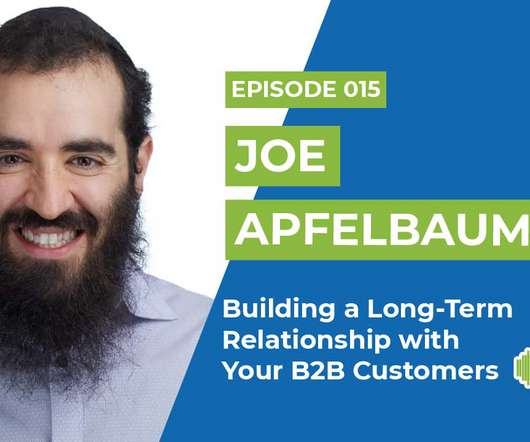Social CRM: Curb Your Enthusiasm
Paul Gillin
OCTOBER 7, 2010
If you’re a marketer in a medium-to large-sized B2B company, you’re almost certainly using customer relationship management (CRM) software to track your customers and prospects. It seems only natural that online social interactions should be part of this profile. I encourage you to restrain your enthusiasm.















Let's personalize your content